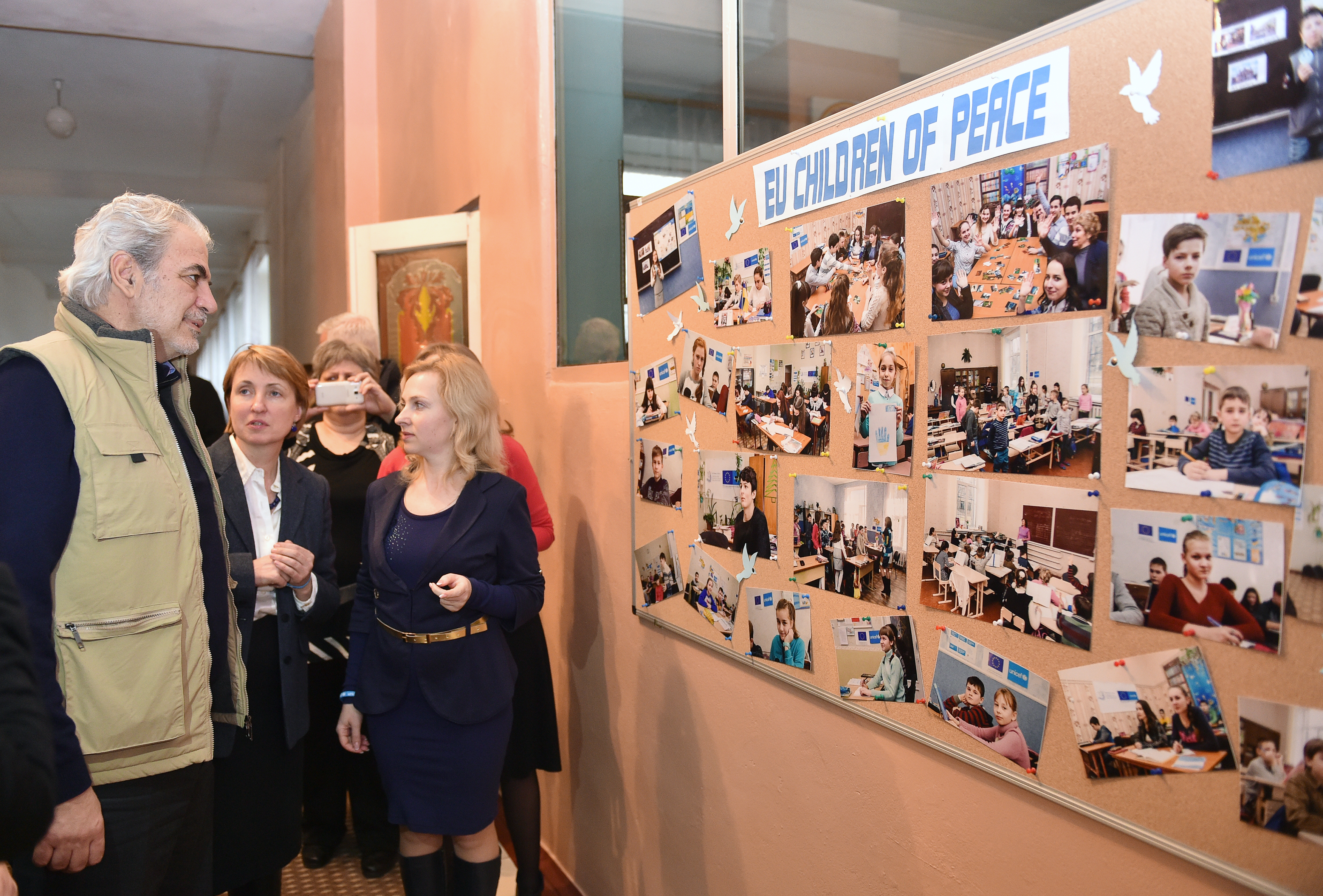EU quadruples its humanitarian financing to education in emergencies worldwide.
Today the European Commission has announced a €52 million humanitarian aid package aimed specifically at educational projects for children in emergency situations in 2016. The package reflects the Commission’s prior commitment to allocate 4% of its humanitarian aid budget to education.
The funding will support over 2,300,000 children in 42 countries around the world and will be targeted at regions where children are at higher risk of being left out of school or having their education disrupted: the Middle East (especially Syria and Iraq), East, Central and West Africa, Asia, Ukraine, Central America and Colombia.
“Today we fulfil and surpass our commitment to quadruple our support to education in emergencies from 1% to 4% of our humanitarian aid budget from €11 million in 2015 to €52 million in 2016. Investing in education now for children caught up in conflict zones and other emergencies is an investment against the risk of a lost generation and an investment for the future. I’m proud that the European Union is becoming a leader in this field. I also commend the European Parliament for its successful efforts to secure additional EU funds for this action and for its continuous support. I now call on all humanitarian donors to follow our example” EU Commissioner for Humanitarian Aid and Crisis Management Christos Stylianides said.
Today’s funding will support access to education in emergency situations, including mine risk education, life skills and vocational training, recreational activities and psychosocial support. Children will also benefit from the provision of school material and the setting up of new education facilities. Teachers, parents and caregivers will also benefit from training.
The aid will be channelled through non-governmental organisations (NGOs), United Nations agencies and international organisations.As an example, UNICEF will improve the quality of children’s learning environment in Aleppo, Syria, by providing solar panels to schools often affected by power cuts. Syrian children will be enabled to access digital resources in schools through low-cost computers and tablets. In Ethiopia, Save the Children will improve access to quality learning for children in refugee camps by providing training to teachers and by renovating or creating new safe learning spaces.
Background
Since 2012, the Commission has increased the financial support to education projects for children living in conflict areas. In 2015, EU Commissioner Christos Stylianides committed to increasing the EU’s humanitarian funding for education in emergency situations to 4% by the end of the mandate of the Juncker Commission. Thanks to support from the European Parliament and EU Member States, this increase has been made possible earlier, as of 2016.
To date, more than €23 million has been allocated for education in emergencies projects, including the contributions of €500 000 from Luxembourg and €250 000 from Austria in 2014. Over 1,519,000 children in 26 countries have benefited so far. With the additional €52 million released this year, more than 3,800,000 children in 46 countries will have been helped by the end of 2016.
Target countries
Afghanistan, Armenia, Georgia, Burkina Faso, Cameroon, Chad, Niger, Nigeria, Central African Republic, Colombia, Democratic Republic of Congo, Djibouti, Ecuador, Egypt, El Salvador, Ethiopia, Guatemala, Honduras, India, Iran, Iraq, Kenya, Lebanon, Libya, Madagascar, Mali, Mauritania, Myanmar, Pakistan, Occupied Palestinian Territory, Philippines, Somalia, the Republic of South Sudan, Sudan, Syrian Arab Republic, Tanzania, Burundi, Rwanda, Uganda, Ukraine and Yemen.
Humanitarian partner organisations that will implement the projects
ACTED, Adra, Concern Worldwide, COOPI Cooperazione Internazionale, Croix Rouge, DanChurchAid, Danish Refugee Council (DRC), Finn Church Aid (FCA), Handicap International, HOPE’87, International Medical Corps, the International Organization for Migration (IOM), International Rescue Committee (IRC), the Lutheran World Federation, Norwegian Refugee Council, Plan International, Plan Spain, SOS Kinderdorf, Save the Children, Terre des hommes, Triangle, the United Nations High Commissioner for Refugees (UNHCR), the United Nations Children’s Fund (UNICEF) and War Child.
For more information
Factsheet on Education in Emergencies
The European Commission’s humanitarian aid and civil protection

